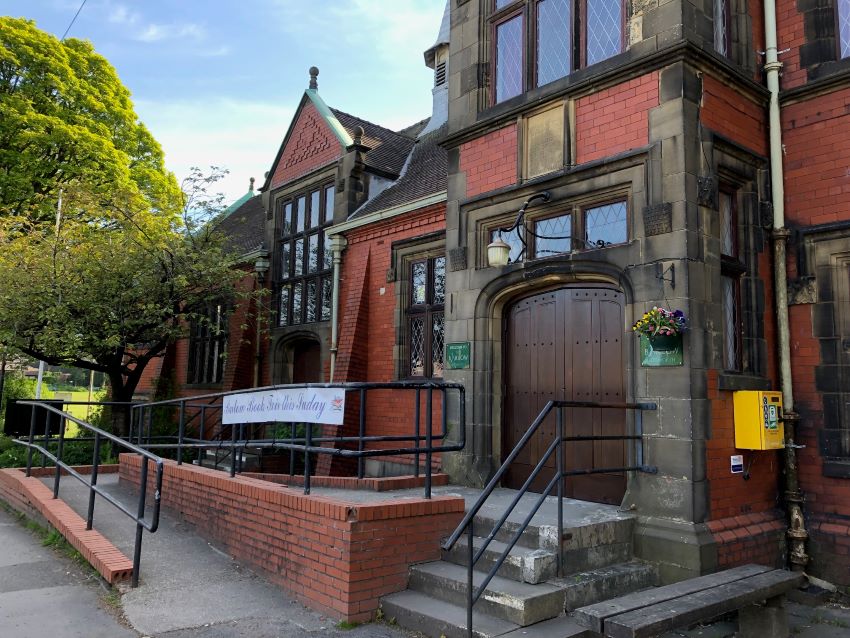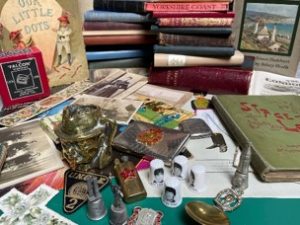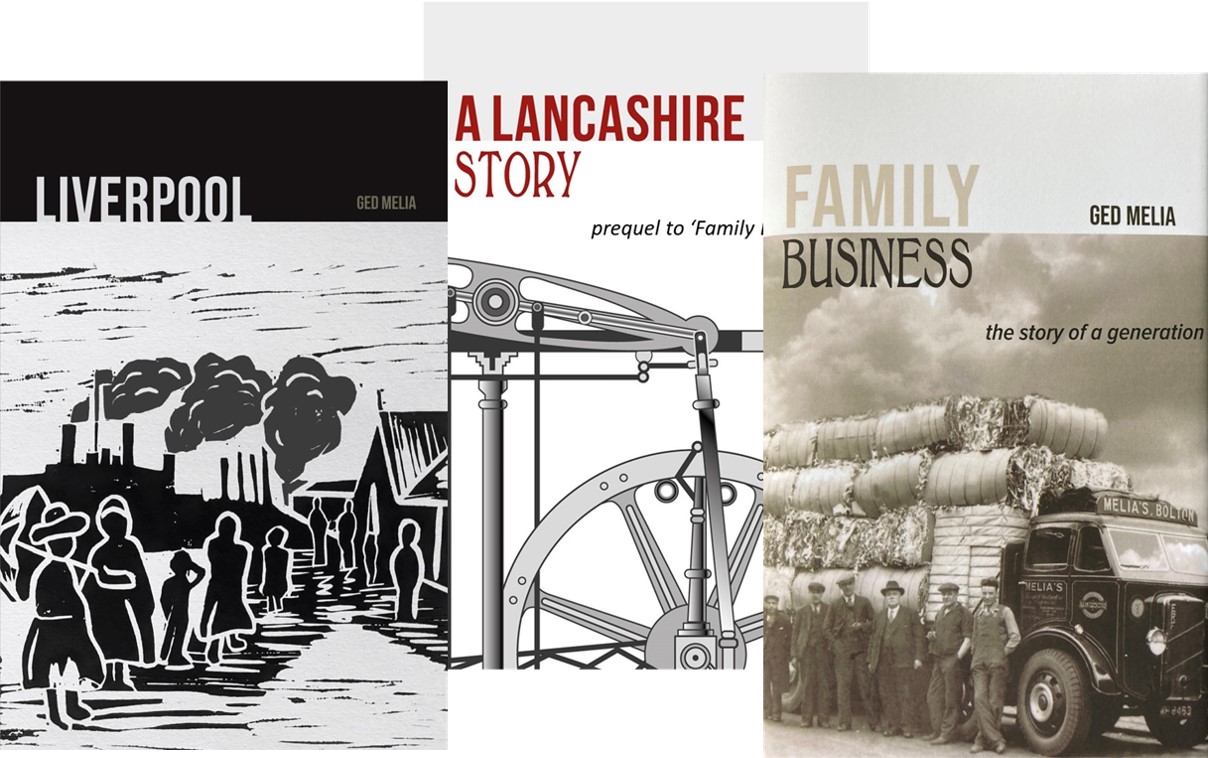The partnership between John Pilling and Edward Melia seemed to have lasted for about two years. A century has elapsed since then and little has been passed down explaining why it failed, although it appears to have dissolved fairly amicably. Austin Melia (Senior) provided the seed finance for the new family haulage business, initially named ‘A Melia Transport’; it was not until the mid-1930s that company became Melias Transport (Bolton) Ltd. According to Edward’s ‘recollection’ the first vehicle purchased was a ‘bullet ridden Maudsley’, although our first photograph is that of an AEC ‘Y’ type lorry (see the photo note).
Thomas and Edward were certainly in partnership very early on in its inception and by the mid-1920s were already accumulating regular speeding fines. Solid tyre lorries were still standard fare during the early part of that decade, but by 1930 pneumatics were fast becoming standard. They needed them. Although more roads were becoming asphalted many were still cobbled which meant uncomfortable journeys and limited travelling distance.
The ‘classical’ period of commercial road haulage started after the First World War and lasted a good fifty years. It was a time when anyone could start a transport business, and thousands did, often following the same path as Thomas and Edward by buying army surplus stock. It was a highly competitive industry and safety standards were pretty low. Accidents were common and many carriers would pay scant regard to the speed limits; they had to compete on both cost and delivery time.
By the early 1930s the two brothers had managed to place the company on a fairly firm footing. Its reputation for reliability and efficiency supported their endeavours during the early years of the Depression. They even managed to exploit the situation as smaller and weaker competitors started to fail, and of course the desire of customers to use road rather than rail; convenience and speed of delivery prevailed. Business grew and they started to employ people. The older lorries were virtually run into the ground before being replaced with Saurers, and later ERFs. However, it was change in the regulatory framework that provided the business with its biggest and best boost.
The intention behind the 1930 Road Traffic Act was to limit driver hours, although the technical ability to patrol these changes was still decades away. The 1930 Act classified vehicles into various groups and imposed speed restrictions according to category. ‘Heavy’ commercial vehicles were limited to 5 mph, 3 mph in built-up areas; lighter lorries with two or less trailers could travel at 8 mph, providing they had ‘soft’ tyres, and 5 mph if they were ‘solid’; ‘heavy’ motor cars and tractors could travel at up to 16 mph; other commercial vehicles were restricted to 20 mph if they used pneumatic tyres. Pull a single trailer, and even for these vehicles the limit was back down to 16 mph. Some of the Melia’s employees were known as ‘brake men’. Back in the early 1930s trailer brakes were operated from the driver’s cab, but the action involved using a separate cable to the driver’s footbrake. The brake man would have to coordinate with the driver and operate the brake under his instruction.
Adopting these restrictions introduced additional costs into the industry and further limited the ability of one-man businesses to compete. Already suffering from the effects of a shrinking economy, the final straw for these smaller operations was the introduction of the 1934 Road Traffic Act. In a single stroke the government rendered all types of commercial haulage activity illegal, unless operated via the grant of an ‘A’, ‘B’ or ‘C’ licence. ‘A’ licences were for the public carriage of commercial goods and allowed the operator to go anywhere; ‘B’ licences were ‘restricted’ to an agreed set of conditions, and ‘C’ licences were granted for the carriage of a company’s own goods. When initially introduced the regime appeared as a threat, but it did not take long before the larger operators in the industry realised that it was a blessing in disguise: what became a thirty-year monopoly had unintentionally been created.
Thomas and Edward soon concluded that the easiest way to grow the business would be to ‘buy’ ‘A’ licences. As a business, they had to apply for a licence before buying an additional lorry, so they adopted the more pragmatic route of buying the whole operation of single-lorry and other smaller operators. The names used in the book, Albert Parry, WF Lund and V Gowland were all acquisitions between 1935 and 1945. Lorries were always useful but it was the ‘A’ licences that Melia’s were after; they could always switch an ‘A’ licence from an older vehicle to a newer one.
Depot moves and expansion into London, Liverpool and Warrington were a necessary product of the need to house more trucks, and service the need of national customers. Their final head office building, on Kay Street in Bolton, had been purchased on the expectation of even more growth. When acquired, it was too large for their needs, but just after WW2 optimism about the future had reappeared. The company really expected to expand further.
Nationalisation cut short the life of the company. Atlee’s grand plan to nationalise road and rail, essentially as a sop to the rail unions, ended the livelihoods of the thousands of remaining smaller haulage operators. A single national operating company was created, BRS, or British Road Services. Melia’s were compulsorily acquired in March 1949, just under thirty years since it was established. Compensation was a major issue across the industry and it was no different with Melia’s Transport. Agreements were generally achieved on the value of physical assets but the goodwill element was always going to be problematic. Thomas always felt that the company had been cheated on this element, and even thirty or forty years afterwards, Gerard Melia would refer to the Labour Party’s hand in the process in extremely derogatory terms.
The return of a Conservative government a few years later ensured the privatisation of the industry. It was in any case already failing. Costs of transporting goods had considerably increased following nationalisation, as the cost benefits of having a competitive private sector were eroded by the introduction of heavy handed and bureaucratic processes. A shrunken BRS survived in various forms until its final demise in 2000.


